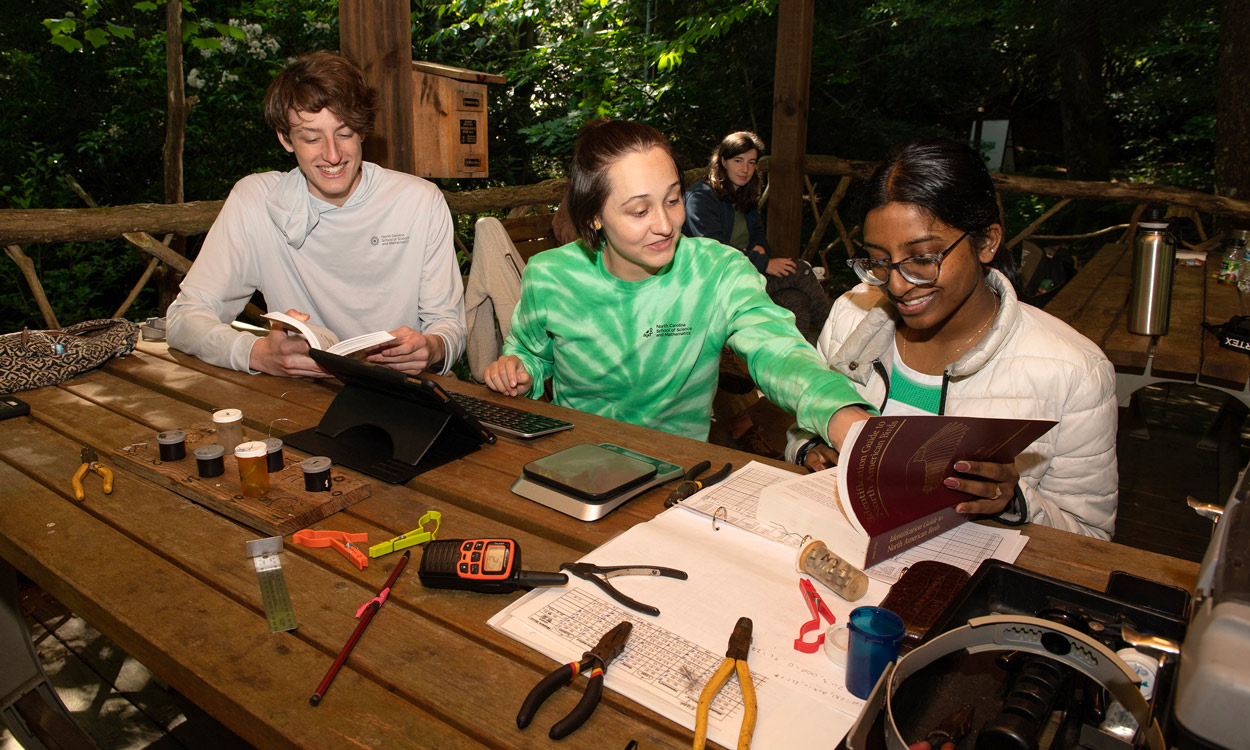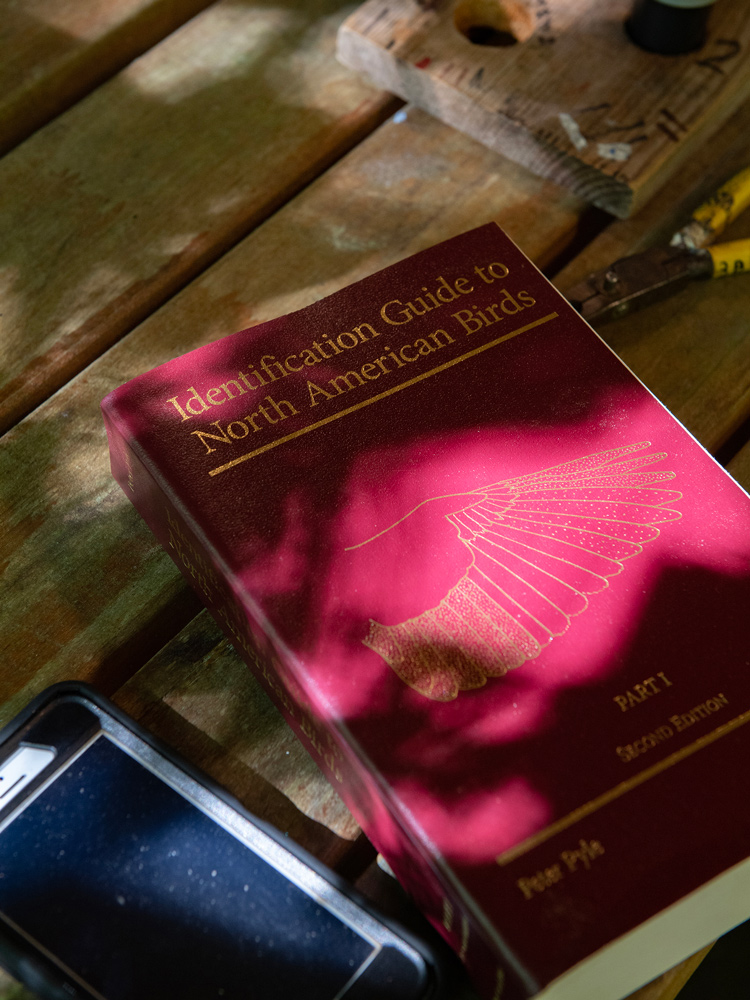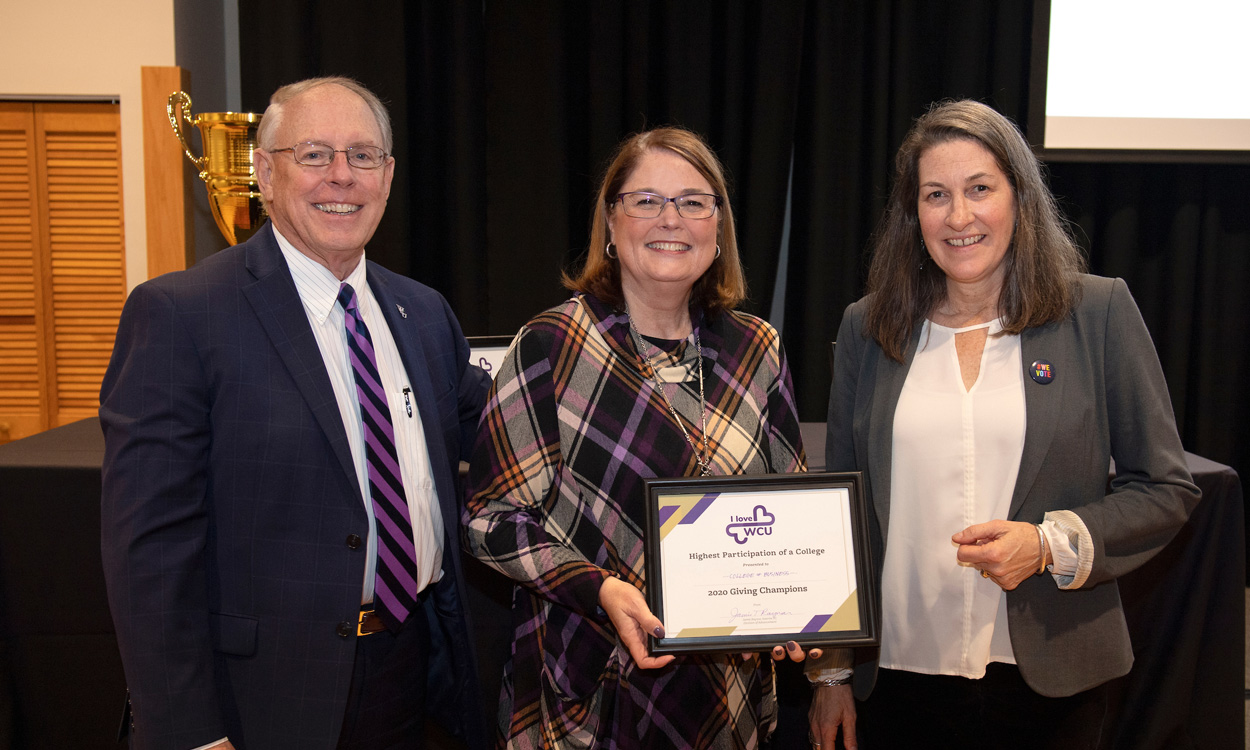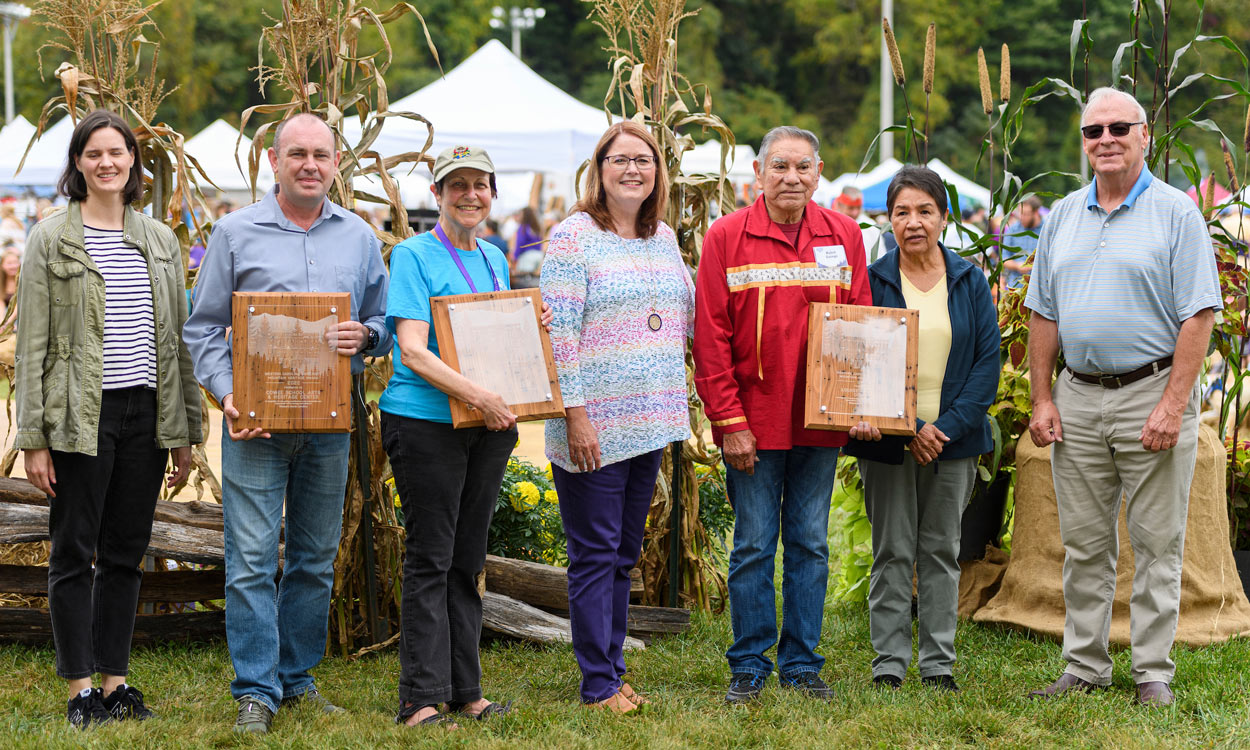NCSSM-Morganton visits Highlands Biological Station for 5-week research and mentorship program

North Carolina School of Science and Math-Morganton students from left to right, Bobby McAdams, Anneliese Pinnell and Sudiksha Battineni.
By Julia Duvall
Three rising seniors from the new Morganton campus of the North Carolina School of Science and Mathematics have spent the last few weeks at Western Carolina University’s Highlands Biological Station as part of their research and mentorship program.
The students, Morganton natives Sudiksha Battineni and Bobby McAdams along with Anneliese Pinnell from Durham, are spending five weeks helping with various projects at the station including programming acoustic bat recorders, bird banding, a wetlands study and water quality testing, among others.
“I really like learning about birds,” Pinnell said. “I was able to take a course in ornithology at school and this is a great opportunity to build on that as well as see the biodiversity in Western North Carolina.”
The students are being housed in residence halls at WCU and shuttled back and forth to Highlands each day.
“I am really into microbiology and want to learn more about microplastics,” McAdams said. “I am also looking forward to being involved in other science projects while I am here; we are doing a variety of them and it’s a great learning opportunity.”
Jason Love, associate director of the Highlands Biological Station, gave more details about the bird banding project the students have been working on.

“Monitoring Avian Productivity and Survivorship is a national program started in the mid-90s to collect data about birds,” Love said. “We are one of a few hundred stations around the nation that does bird banding. We have 10 nets set up around the station and catch the birds to collect the data. We do this in partnership with Blue Ridge Bird Observatory and try to gather as much information as quickly as we can, so the bird is released as soon as possible. We determine the age and sex of the bird and pull any parasites or ticks that we see for documentation. We share this data with the Southeastern Cooperative Wildlife Disease Study unit, which is like the CDS for wildlife. The MAPS project is funded through the Highlands Biological Foundation and is a great way for students as well as community members to see birds they would not normally see at their feeders.”
Another project the students have been working on involves setting up bat recorders in abandoned mine shafts in the area.
“There are several endangered bats species in the area,” Love said. “They are showing up with cases of a fungi called white nose syndrome and it is decimating the bat population, so we are trying to assess the use of abandoned mine shafts by bats using acoustical monitoring, which is a non-invasive technique where we deploy the recorder outside the mine and record the calls of bats. Just like birds, bats give unique calls by species, so we are able to determine which species are using the mine by looking at the sonogram.”
Students apply to the NCSSM research and mentorship program based on interest, submit a resume and go through an interview process.
“I love the variety of projects we are doing from the herbarium to bird banding every 10 days, to wetlands and detecting noise pollution for the bats,” Battineni said. “My favorite topic is aquatics, but I love how we get to experience a little bit of everything. I want to go into conservation ecology and getting this field experience and seeing how research happens is very beneficial. I am grateful for this opportunity.”
This partnership is an expansion by NCSSM to include a pilot program at WCU for the research and mentorship program.
"NCSSM has long partnered with universities in the Triangle, and we're excited to expand this collaborative ecosystem to the mountain region with a pilot at Western Carolina University,” said Kevin Baxter, vice chancellor and chief campus officer for NCSSM-Morganton. “Our NCSSM-Morganton students have the opportunity to live, learn and experience research opportunities in Cullowhee and benefit from expertise at WCU's Highlands Biological Station. We anticipate this being the first of many residential mentorship and research partnerships throughout the state and hope it introduces students to the many opportunities available to them if they pursue a degree from a UNC System school."

